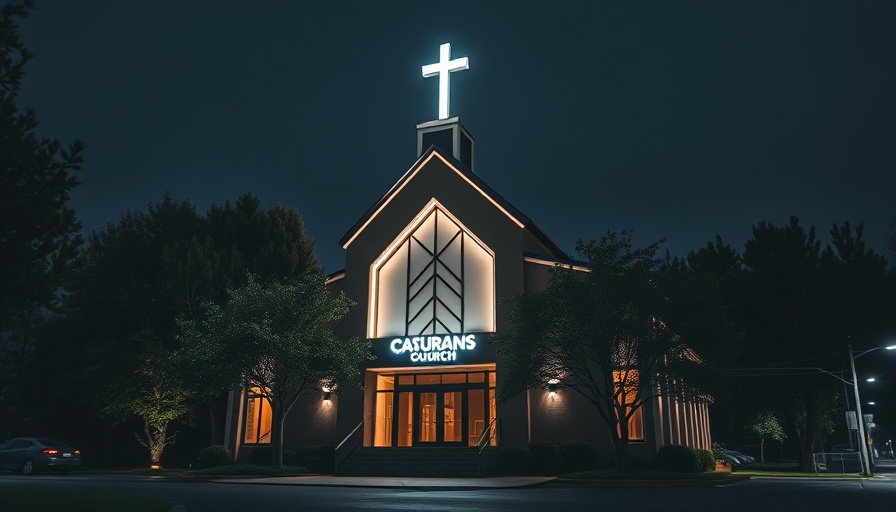
The Changing Leadership Landscape at Second Baptist
In a surprising turn of events, Second Baptist Church in Houston, a prominent megachurch, faces a lawsuit following the transition of leadership from Ed Young to his son, Christian Young. This shift has not only stirred the community but has raised significant questions about church governance and the importance of congregational involvement in pastoral changes.
Why Pastoral Leadership Matters in Communities
For many families within the Christian community, church isn’t just a building; it’s home. The pastoral leadership can deeply impact how families identify with their church family and faith. When decisions regarding this leadership happen without congregational input, it can create feelings of unease and disenfranchisement.
In an environment that values relationship-driven involvement, the absence of a congregational vote during such an impactful transition raises eyebrows. Families considering how they want their kids and loved ones to engage with their faith communities must be aware of these shifts and what they signify about communal unity.
Understanding the Lawsuit and Its Implications
The lawsuit is primarily centered around claims that the church's bylaws are not being followed, especially regarding how leadership transitions should take place. It highlights an essential principle of church governance: accountability and transparency. Families and communities flourish when there is clarity and communication about decision-making processes.
The specifics of how this situation unfolds could have lasting implications for Second Baptist and other churches facing similar transitions. For instance, it forces congregations to reflect on their own governance structures and whether their bylaws truly mirror the congregational values they aspire to embody.
Building Trust Within Christian Communities
Trust is a pillar of any healthy church family. Current events at Second Baptist serve as a case study for other congregations on how leadership changes can affect trust levels among members. When community members feel they are left out of critical decisions, it can create division that disrupts unity.
In navigating these dynamics, churches are encouraged to prioritize open lines of communication. Encouraging congregational dialogue during changes can help reinforce trust, making everyone feel they are part of a shared journey rather than passive observers.
Lessons for Families in Faith
This situation serves as a reminder for families about the core values of community, faith, and involvement. Parents, especially those engaged in raising spiritually curious children, should stress the importance of remaining informed about their church’s governance. They might ask: How does our church make decisions? What role do we, as a family, play in shaping our church’s future?
Engaging children in conversations around these issues also helps foster their understanding of communal responsibility and encourages a proactive approach to their faith journey.
Create a Lasting Impact: Get Involved
As these events unfold, families who are seeking unity within their church community are encouraged to become more involved. Whether that looks like participating in church board meetings, joining discussion groups about bylaws, or having informal chats with church leaders, these actions can help foster a deeper connection to the community.
Remember, empowering the younger generation to ask questions can help cultivate a culture where members feel heard and valued. This engagement lays a strong foundation for future church decisions.
Final Thoughts: Seeking Unity in a Changing Landscape
The lawsuit against Second Baptist Church serves as a crucial reminder of the importance of inclusivity and transparency in church leadership transitions. For families, finding their voice and ensuring that they are part of the collective journey of faith is essential for nurturing a vibrant spiritual community. As events like these unfold, let’s remain attentive to how we can ignite conversations that bring us closer together and continue to promote a nurturing Christian environment for our families.
If you want to learn more about how your involvement can create positive change within your community, seize the opportunity to engage with your church's governance today. Open dialogue is key to a thriving faith family.
 Add Row
Add Row  Add
Add 








Write A Comment